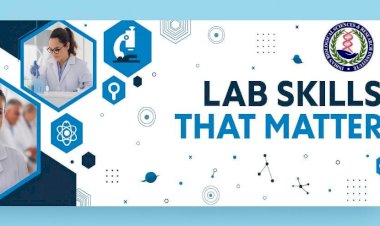Career in Biotechnology: A Comprehensive Guide

Overview
Biotechnology is at the forefront of innovation, shaping industries like healthcare, agriculture, and sustainability. For aspiring professionals, this field offers immense opportunities—but success requires strategic preparation, continuous learning, and practical experience. Here’s how to build a thriving career in biotechnology, with insights into the value of certifications and project-based training.
1. Know the Scope of Biotechnology
Biotechnology uses biological systems and technology to address challenges across various sectors:
- Medical Biotechnology: Focused on drug development, gene therapy, and diagnostics.
- Agricultural Biotechnology: Innovations in GMO crops, biofertilizers, and pest resistance.
- Environmental Biotechnology: Solutions for waste management, renewable energy, and bioremediation.
- Industrial Biotechnology: Advancements in biofuels, biodegradable materials, and industrial processes.
Early specialization can help align your skills with industry demands.
2. Lay the Academic Foundation
A strong educational background is the first step:
- Undergraduate Degree: Pursue courses like Biotechnology, Molecular Biology, or Biochemistry.
- Higher Education: A Master’s or Ph.D. is often essential for leadership or research roles.
3. Certifications: A Career Catalyst
In today’s competitive market, certifications and project-based learning can set you apart. As highlighted in our Previous Blog certifications not only enhance your knowledge but also increase employability.
Institutes like IBRI (Indian Biological Sciences and Research Institute) specialize in bridging the gap between academic knowledge and industry requirements through certifications and hands-on training, including:
- Bioinformatics and Computational Biology: For data-driven biotech roles.
- CRISPR and Genetic Editing: A must-have for modern biotechnology.
- Good Manufacturing Practices (GMP): Essential for quality assurance in pharmaceutical and biotech industries.
4. Gain Hands-On Experience
Biotechnology is a practical field, and employers value real-world experience:
- Internships: Work with biotech companies, research labs, or startups to gain industry exposure.
- Project-Based Training: At IBRI, we emphasize practical training that integrates theory with real-world applications, preparing you to tackle industry challenges effectively.
5. Build In-Demand Skills
Develop technical and soft skills to stand out:
- Technical Skills: Proficiency in PCR, bioinformatics, spectrometry, and statistical tools like Python or R.
- Soft Skills: Strong communication, teamwork, and problem-solving abilities are crucial for multidisciplinary collaborations.
6. Network and Stay Updated
Networking is essential for professional growth:
- Join professional organizations like BIO or SIMB.
- Attend biotech conferences, webinars, and career fairs to connect with industry leaders.
- Keep up with emerging trends like AI in drug discovery or synthetic biology by following journals and thought leaders.
7. Explore Diverse Career Paths
Biotechnology offers diverse roles based on your expertise:
- Entry-Level Roles: Lab technician, research assistant, or quality control analyst.
- Advanced Roles: Research scientist, clinical trial manager, or biotech entrepreneur.
With a strong foundation and certifications, transitioning to leadership roles becomes easier.
Why Certifications and Project Training Matter
Certifications and practical training aren’t just add-ons—they’re game-changers. As discussed in our previous blog on "The Importance of Certification Courses and Project Training in the Life Sciences Industry", they equip you with industry-relevant skills and enhance your employability. At IBRI, we offer tailored programs to help you excel in areas like genomics, bioinformatics, and pharmaceutical sciences.
Conclusion
A successful career in biotechnology requires more than academic excellence. Certifications, hands-on experience, and networking are essential to thrive in this competitive field. With the right approach and the support of training institutes like IBRI, you can unlock opportunities in this transformative industry.
Explore IBRI’s programs today to unlock new career opportunities and stay ahead in the life sciences industry.
You can contact us at - Email : info@ibri.org.in or Call at : (+91) 9999509892 , 9971441910
#biotechnology #careerinbiotech #IBRItraining #lifesciencescareers #biotechcertifications #projecttraining #biotech #STEMcareers #molecularbiology #regulatoryaffairs #pharmacy #btech #bioinformatics

 Manju
Manju 

























